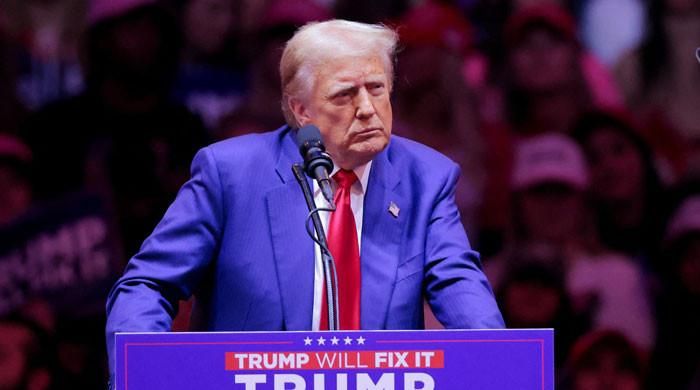Much of the outside world's attention during the 2024 US election has focused on what a victory for former US President Donald Trump would look like, but many Americans, including some of his most vocal opponents, are worried about the opposite outcome.
The 78-year-old Republican, who is tied with Democrat Kamala Harris in the race for the White House, has never acknowledged the legitimacy of his electoral losses from the 2016 Iowa primary to his 2020 presidential race.
His denialism deeply polarized the country last time, and his continued attempts to sow distrust in American democracy have sparked fears of a repeat of the violence seen during the storming of the US Capitol in 2021.
“If he loses this year, I have no doubt he will allege fraud, leave no stone unturned to overturn the results and refuse to attend Harris' inauguration,” said Donald Nieman, a political analyst at Binghamton University in the New York state.
“Not only is he a sore loser, he's someone who will never admit he lost.”
Trump's record shows that it is not beyond him to try to cheat in the election.
He has 34 felony convictions for a scandal involving undercover payments to silence an adult film star he feared was about to ruin his 2016 campaign with a salacious story about a one-night stand.
And he has been charged twice and charged twice for alleged attempts to steal or cheat in the 2020 election, something he has yet to concede.
Rejected by the American people four years ago, Trump and his allies flooded the area with false accusations of wrongdoing and fraud.
deadly riots
Trump's critics fear a repeat of the deadly Jan. 6 riot that was carried out by an angry mob summoned to Washington by Trump, fired up by his accusations of election fraud and sent to march on the Capitol.
Especially since he's at it again.
“If I lose, I'll tell you one thing, it's possible because you cheat. That's the only way we're going to lose: because you cheat,” Trump told attendees at a rally in Michigan last month.
Trump has been dusting off the same unfounded concerns about the legitimacy of vote counting, foreigners voting, the reliability of mail-in votes, and much more.
The former president and his allies set the stage for the 2021 riots through legal means: more than 60 lawsuits largely complaining about the way state and local authorities had changed voting rules to account for a devastating pandemic. .
But they lost all the substantive cases, and the judges ruled that objections to the electoral organization should have been raised long before the first vote was cast.
Republicans got to work this time, filing more than 100 lawsuits before early voting began over every aspect of the election, from how Americans register and cast their votes to who can vote.
Many of the lawsuits seek to limit access to the polls and most will remain unresolved on Election Day, but experts say this plays into distrust over vote counting that Trump and other conspiracy theorists have been exacerbating for years. years.
Nearly two-thirds of Americans anticipate post-election violence, a Scripps News/Ipsos poll released Thursday found, and most support using the military to quell unrest after polls open on Nov. 5.
More than a quarter believe a civil war could break out, according to a new YouGov poll, and 12% say they know someone who might take up arms if they thought Trump had been misled.
The intelligence community expressed concerns about the potential for bloodshed in a report on election threats from foreign actors that was declassified, redacted and released last week by the Office of the Director of National Intelligence.
“Violent protests, violence or physical threats fueled or amplified from abroad…could challenge the ability of state and local officials to carry out elements of the Electoral College and certification process,” he said.
In Washington, security measures have been reinforced in anticipation of possible unrest, although analysts contacted by AFP considered a repeat of the 2021 insurrection in the capital unlikely, with hundreds of subsequent prosecutions acting as a powerful deterrent.












